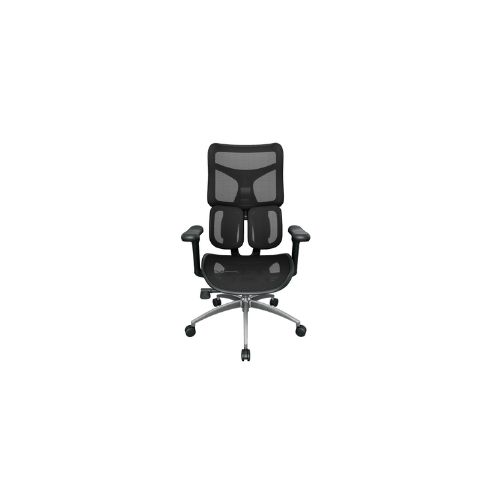An HP Laptop VS an HP Desktop PC: Which One Is Best For You?
In today’s tech-driven world, the debate between laptops and desktop PCs is more relevant than ever. With advancements in technology, both options offer impressive performance and features
By admin
·September 24 20
In today’s tech-driven world, the debate between laptops and desktop PCs is more relevant than ever. With advancements in technology, both options offer impressive performance and features, but they cater to different needs and lifestyles. Laptops provide the convenience of portability, making them ideal for on-the-go professionals, students, and casual users. On the other hand, desktop PCs often deliver superior performance, customization, and upgrade options, making them a favorite among gamers and content creators. In this blog, we’ll explore the key differences, advantages, and disadvantages of each to help you decide which device is the best fit for your requirements.
What Is a Laptop Vs a Desktop PC?
A laptop is described as a portable computer, meaning it is designed for mobility and can be easily transported and used in various locations, such as at home, in a café, or during travel. Laptops typically have a built-in screen, keyboard, and battery, which allows users to work or browse the internet without needing a power source.
In contrast, a desktop PC is categorized as a stationary computer. This means it is meant to remain in one place, usually on a desk or table. Desktop PCs are generally composed of separate components, including a monitor, keyboard, and a central processing unit (CPU) that houses the hardware. While desktops tend to offer more power and customization options, their fixed nature limits where they can be used.
Pros and Cons of Laptop and Computer
Explore the pros and cons of laptops and desktop computers to find out which option best suits your lifestyle and computing needs.
| Pros of Laptops | Cons Of Laptops |
| Lightweight and compact | Less powerful hardware |
| Used in various settings | Many parts are integrated or soldered in |
| Operate without needing to be plugged | Have smaller displays |
| Require less desk space | Can run out of charge during use |
| Built-in screens, keyboards, and trackpads | Can overheat more easily |
| Use with minimal setup | Susceptible to damage from drops or spill |
| Built-in Wi-Fi and Bluetooth | More expensive |
| Pros of Computer | Cons of Computer |
| More powerful processor | Bulky and require a dedicated workspace |
| Easily upgrade components | More space and require a desk |
| Support larger monitors | Setting can be complicated |
| Separate monitors, keyboards, and mice | Must be plugged into a power source |
| Provide better performance | Designed for a fixed workspace |
| Better cooling systems | Can be noisier due to the components |
| A great variety of ports | Do not have battery backup |
Which is Best For Gaming: Laptop or Computer
Desktop computers are superior for gaming compared to laptops due to their powerful graphics cards and processors, ensuring smooth gameplay and stunning visuals. They are easy to upgrade, allowing gamers to keep their systems current without replacing the entire unit. Desktops also support larger monitors for a more immersive experience and typically have better cooling systems to prevent overheating. While gaming laptops offer portability, they often compromise on performance and upgrade options, making them more expensive for similar specs. For serious gamers seeking the best performance, desktops are the clear choice.
Which is the Ultimate Choice For Modern Professions?
Laptops are the ideal choice for modern professionals due to their portability and versatility, allowing work from virtually anywhere. Their built-in batteries enable easy movement between locations, while their compact size suits small workspaces. Equipped with essential features like Wi-Fi and built-in webcams, laptops facilitate remote collaboration effortlessly. Although desktops may offer more power, they lack the flexibility needed in today’s fast-paced work environment. For those who prioritize efficiency and mobility, a laptop is essential for success.
How Easy Is It to Fix a Laptop vs. a Desktop PC?
Repairing a laptop is often straightforward, especially for common issues like battery replacements and hard drive upgrades, with many manufacturers providing helpful guides. Laptops feature standardized components, making it easy to find compatible parts. For those who need professional assistance, specialized repair shops are widely available.
In contrast, desktop PCs are generally easier to repair due to their modular design, allowing for quick access to components like the graphics card and RAM. This modularity simplifies upgrades and repairs, while abundant online resources empower users to troubleshoot confidently. Overall, both laptops and desktops offer manageable repair experiences, but desktops provide more flexibility for customization and hands-on learning.
Choosing between a laptop and a desktop PC ultimately depends on your needs and preferences. Consider factors such as your lifestyle, work habits, and specific tasks you’ll be performing. Laptops excel in portability and convenience, making them ideal for those who are always on the go. On the other hand, desktop PCs provide greater power and customization options, catering to users who prioritize performance and a dedicated workspace. By weighing the pros and cons of each option, you can make an informed decision that best aligns with your computing requirements and enhances your overall experience.
Stay tuned to Freshfads for more updates related to home and tech.















